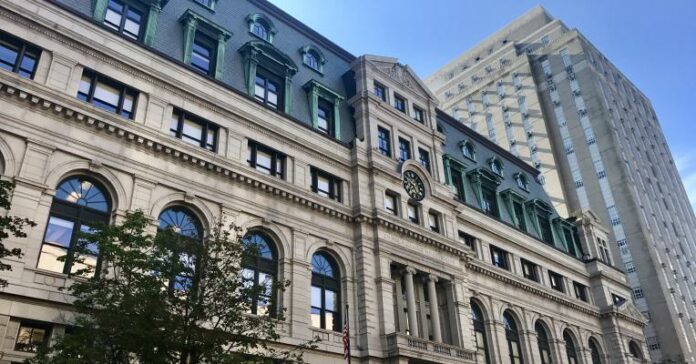I am an attorney, but I am not a First Amendment free speech attorney. However, as the saying goes, I know enough to be dangerous. Moreover, I am usually pretty good at issue spotting, even in areas outside of my area of legal expertise. In the recent Massachusetts Supreme Court First Amendment free speech case I read about, I see potential danger to our town. Massachusetts is one of the most liberal states in the country, so for its supreme court to rule as it did in this free speech case is significant. It does not bode well for the constitutionality of our town’s civility policy as it now stands.
First, the back story. Last year, our town council implemented a new policy to control decorum at its meetings, following an extremely disruptive meeting that devolved into near chaos. This policy, which was also implemented statewide as SB 1100, defines a meeting disruption as “engaging in behavior during a meeting of a legislative body that actually disrupts, disturbs, impedes or renders infeasible the orderly conduct of the meeting.” That includes noncompliance with local regulations or “engaging in behavior that constitutes use of force or a true threat of force.” The law also allows the leader of the public meeting, such as the mayor or chairperson, to remove a disruptive participant after issuing a warning. That is not the sum total of the town’s civility policy, however.

Currently, at the commencement of town council, board and commission meetings in Los Gatos, a recorded message is given to the public, stating among other things, that “Anti-social behavior, slander, hatred and bigotry statements are completely unacceptable and will not be tolerated in any way, shape or form at town council meetings.” It also indicates that statements against nonpublic officials “shall not contain slanderous statements, hatred and bigotry.” Herein lies the potential problem, as illustrated by the court case in Massachusetts.
The Massachusetts Supreme Court ruled that the public has a right to be rude at public meetings in striking down the town of Southborough’s “civility code” for public comment at meetings. Going back hundreds of years to the founding days of our country as part of its analysis, the court indicated that in drafting the state’s constitution, John and Samuel Adams intended to allow colonists to redress the wrongs done to them. They aimed to allow colonists the freedom to rail against King George III in a rude and profane manner.
The Massachusetts case arose after a resident at a Southborough Select Board Meeting accused the town of breaking the state’s open meeting law. When a board member cut her off and accused her of “slander,” the resident told the board member that he needed to, ”stop being a Hitler.” She added the statement that “You are a Hitler. I can say what I want.” The board member replied by calling the resident “disgusting” and by telling her she would be escorted out of the meeting if she did not leave.
The Massachusetts Supreme Court indicated that the resident’s reference to Hitler was “certainly rude and insulting” but was protected speech nonetheless. The court added that the town’s insistence on civility “appears to cross the line into viewpoint discrimination: allowing lavish praise but disallowing harsh criticism of government officials.” The court added that civility “…cannot be required.” An attorney for the town indicated that the court’s ruling “effectively warns local officials against enforcing even modest rules of order and decorum at public meetings.”
The Massachusetts Supreme Court case is by no means binding on a California Court. However, in addressing a unique or difficult issue, it is not uncommon for our courts to look outside of California to see how other reputable courts in other states or even in other countries, are handling the issue. This suggests that before it is too late, before we see a case arising out of our town ending up in court at considerable expense, the town should perhaps revisit its civility policy. To the extent it attempts to restrict the public’s free speech right to make obnoxious, insulting, bigoted, hateful and provocative comments at public meetings, it may be constitutionally suspect.
Jeffrey P. Blum is a family law mediator who lives in Los Gatos.










